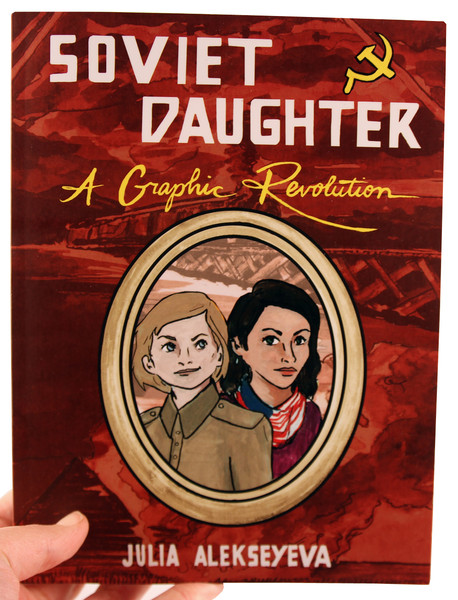
Soviet Daughter: An Interview with Julia Alekseyeva
 Julia Alekseyeva’s memoir-cum-history, Soviet Daughter, chronicles major events—including the Russian Civil War, the Revolution, and World War II—through the eyes of her rebellious, Jewish great-grandmother, Lola, who was born in 1910. Lola would become a secretary for the NKVD (later the KGB) and a Lieutenant in the Red Army. Towards the end of her life she began to write down her story in a memoir that contained a note at the front specifying that it should not be read until after her death, which is when her great-grand daughter first saw Lola’s writings.
Julia Alekseyeva’s memoir-cum-history, Soviet Daughter, chronicles major events—including the Russian Civil War, the Revolution, and World War II—through the eyes of her rebellious, Jewish great-grandmother, Lola, who was born in 1910. Lola would become a secretary for the NKVD (later the KGB) and a Lieutenant in the Red Army. Towards the end of her life she began to write down her story in a memoir that contained a note at the front specifying that it should not be read until after her death, which is when her great-grand daughter first saw Lola’s writings.
Alekseyeva, who immigrated to Chicago with her family in 1992, weaves her own story into this narrative, describing her experience with immigration, assimilation into American culture, and radical politics. Today, she lives in Brooklyn, teaches Japanese cinema and documentary film at Brooklyn College, and is a Ph.D. candidate in Comparative Literature at Harvard.
I met up with Julia in downtown Manhattan, after a Jewish solidarity rally for refugees in Battery Park. We talked about Russian history, Soviet feminism, intergenerational friendships, and the importance of immigrant literature in the current political context.



